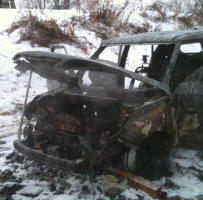— A Hyundai and Kia lawsuit will move forward in court after the judge ruled against dismissing the engine lawsuit entirely, although several claims against Hyundai and Kia were tossed.
The Hyundai and Kia class action lawsuit alleges 2011-2013 Hyundai Tucson and 2012-2016 Kia Soul vehicles have engines that stall and catch fire.
The original Hyundai and Kia lawsuit included the Kia Sportage, but the lawsuit was partly dismissed in March 2020 and an amended suit was filed in May 2020. The current version of the lawsuit includes seven new plaintiffs and 10 new claims.
Of the fourteen plaintiffs, eight customers allege their vehicles suffered problems with the engines, but six customers who sued do not allege their vehicles had any engine problems.
According to the class action, 2012-2016 Kia Souls were recalled in 2019 due to programming errors that made the catalytic converters in the Gamma engines susceptible to overheating. But the plaintiffs claim the vehicles had other problems with metal shavings that destroyed the engines.
The Hyundai and Kia lawsuit alleges the automakers were aware of defective Gamma and Nu engines as early as 2011.
As for 2011-2013 Hyundai Tucsons, the lawsuit alleges defects “leading to oil pan leaks in 2011-2013 Hyundai Tucson vehicles have caused serious risk of harm in the form of spontaneous engine stalling and engine fire.”
Hyundai issued a recall for at least 120,000 model year 2011-2013 Tucson SUVs due to oil pan leaks. However, the plaintiffs allege the recall didn't do anything to prevent the vehicles from catching fire.
According to the Hyundai and Kia lawsuit, both automakers have concealed knowledge of the engine defects because complaints made to the National Highway Traffic Safety Administration prove the automakers knew about the defects.
Motion to Dismiss the Hyundai and Kia Lawsuit
In their motion to dismiss the lawsuit, Hyundai and Kia argued various complaints about various engine problems don't prove knowledge of specific alleged defects in the engines.
The judge agreed and ruled the complaints are too general in nature and the dates of the majority of the complaints are too late to sufficiently support Hyundai and Kia knew of the alleged defects before 2016.
The class action also alleges Hyundai and Kia must have known about the engine problems based on dealer reports and warranty claims. But the judge disagreed with the plaintiffs because they admit they are “unable to cite specific warranty claims or dealership reports.”
Judge James L. Robart also found allegations the automakers knew of the defects because they generally conduct rigorous testing of the vehicles are insufficient to allege knowledge of Hyundai and Kia engine defects.
"Plaintiffs’ allegations are too general, establishing only the general rigor of the testing, and contain no specifics of how Defendants’ alleged testing would reveal the specific alleged defects. The court finds it proper...to dismiss the fraud-based claims of Plaintiffs who purchased class vehicles before 2016." - Judge Robart
In their motion to dismiss the lawsuit, Hyundai and Kia argue implied warranty claims must be dismissed because the plaintiffs either fail to allege privity or allege a defect manifested outside the implied warranty period.
The judge granted the motion to dismiss claims based on implied warranties, but only for seven plaintiffs. And while Hyundai and Kia argued fraud claims should be dismissed because of the statute of limitations, the judge ruled the statute of limitations for fraud was tolled at this stage of the case.
In addition, the judge ruled the Hyundai and Kia lawsuit sufficiently pleaded fraudulent concealment.
The court also denied a motion to dismiss claims from owners outside of California under California statutes, and denied to dismiss owner claims as time-barred.
The Hyundai and Kia lawsuit was filed in the U.S. District Court for the Western District of Washington at Seattle: Short, et al., v. Hyundai Motor America, Inc., et al.
The plaintiffs are represented Keller Rohrback.

